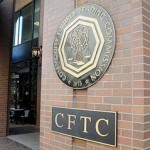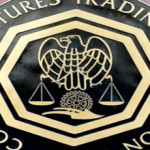CFTC Says Flexibility essential to Oversee Cross-Border Swaps

U.S. regulators need flexibility in overseeing cross-border swaps, a lawyer for the Commodity Futures Trading Commission told a federal judge as he defended the agency’s reliance on guidance rather than formal rules in a lawsuit brought by Wall Street’s largest lobbying groups.
Congress directed the CFTC to regulate overseas trading of swaps to prevent a catastrophic market failure like the one involving American International Group Inc. (AIG) in 2008, Robert Schwartz, a lawyer for the agency, said at a hearing in federal court in Washington.
The CFTC didn’t want to bind itself “with inflexible rules,” Schwartz said. “The markets change all the time. They change their business practice to avoid regulation where they believe it is in their interest.”
He asked U.S. District Judge Paul Friedman to dismiss the case, arguing that if swaps market participants prevail in court they would have “free reign to conduct their business overseas without consequences.”
The lawsuit — also filed by the International Swaps and Derivatives Association and the Institute of International Bankers — is one of a series of Wall Street challenges to U.S. efforts to overhaul financial regulation following the worst economic collapse since the Great Depression.
Goldman Sachs
The trade groups represent Goldman Sachs Group Inc., Deutsche Bank AG, JPMorgan Chase & Co. and other swap dealers.
The 2010 Dodd-Frank Act gave the CFTC power to bring swaps, which have been traded behind closed doors, under U.S. oversight for the first time.
The question of how to apply the new regulations overseas has been among the most contentious issues in the battle between the banks and the agency over the $700 trillion global derivatives market.
The biggest banks conduct at least half their swaps business with overseas clients, according to some estimates.
CFTC Guidance
Schwartz said it could take a year or more to write a rule if the CFTC guidance is thrown out.
Eugene Scalia, a lawyer representing the Securities Industry and Financial Markets Association, urged Friedman to do just that. He said the CFTC illegally set policy without considering industry comment and without weighing the costs of its actions.
SIFMA and two other financial trade groups sued the CFTC in December, challenging guidelines issued in July 2013.
While the CFTC describes the guidance as non-binding, it was crafted by the heads of the agency, contains binding statements about when certain requirements “will” apply and contains other attributes of a regulation issued through a formal process, Scalia said.
‘This Document’
“Everybody understood that this document would be treated as a rule and that’s what’s happened,” Scalia said.
It should be vacated because it didn’t follow legal requirements for rulemaking such as having a cost-benefit analysis, Scalia told Friedman. “They needed to engage in tailoring and factor in costs,” he said.
Friedman questioned lawyers for both sides about the language of the section of Dodd-Frank authorizing oversight of swaps and about the fine points of regulation, including the differences between a congressional rule, an interpretive rule and a policy statement.
Former Democratic Representative Barney Frank, an architect of the law that bears his name, and 18 other current and former members of Congress filed court papers stating that lawmakers intended overseas swaps to be regulated and that the CFTC has the authority to do so without formal rulemaking.
“The relief sought by plaintiffs would allow almost the entire global swaps market to evade United States regulation by the simple expedients of trading through a foreign subsidiary or booking the swap on a trading desk or a derivatives exchange located in another nation,” lawyers for lawmakers wrote.
The CFTC avoided a “hard and fast” rule to allow it the flexibility to apply guidance on a case-by-case basis and “prevent the evasion of the law by industry ‘innovation,’” according to the lawmakers’ filing.
The case is SIFMA v. U.S. CFTC, 13-cv-1916, U.S. District Court, District of Columbia (Washington).
Source: bloomberg



























